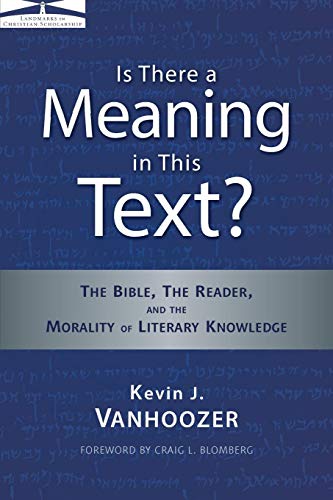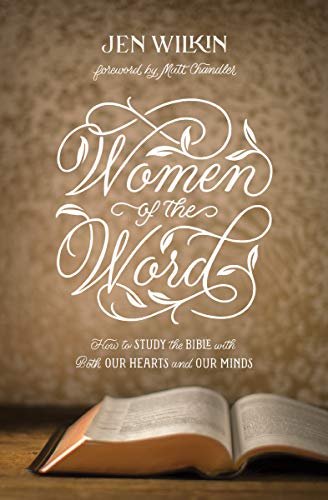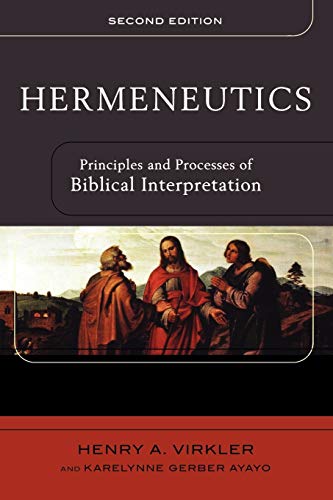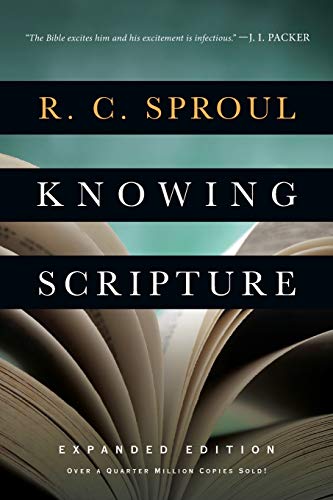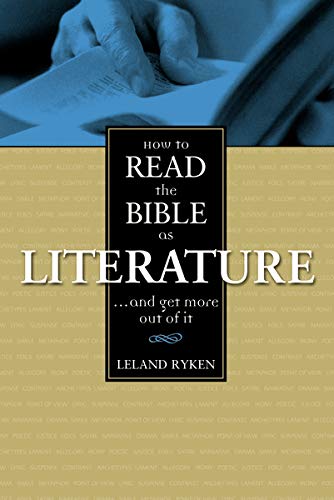Quotes about Bible-Interpretation-General
Christ is the sum of the whole Bible, prophesied, typified, prefigured, exhibited, demonstrated, to be found in every leaf, almost in every line, the Scriptures being but as it were the swaddling bands of the child Jesus.
The shortest road to an understanding of the Bible is the acceptance of the fact that God is speaking in every line.
Jesus said that we will know the truth about Himself only if we are willing to do His will, that is, if we allow ourselves to be changed by the truths we find in Scripture. He said, “If any man’s will is to do His will (that is, if he determines to do it), he shall know whether the teaching is from God or whether I am speaking on my own authority” (John 7:17). We must not assume that we will be able fully to understand any passage of Scripture unless we are willing to be changed by it.
James Montgomery BoiceTaken from “Foundations of the Christian Faith-Book I” by James Montgomery Boice, page 97. (c) 1986 InterVarsity Christian Fellowship of the USA, Revised edition. Used by permission of InterVarsity Press, P.O. Box 1400, Downers Grove, IL 60515. www.ivpress.com http://www.gospelcom.net/cgi-ivpress/book.pl/code=991. Get this book!
You know how it was with Moses, when he saw two men fighting, one an Egyptian, and another an Israelite, he killed the Egyptian; but, when he saw two Hebrews fighting, Now, saith he, I will go and reconcile them, for they are brethren; why so, but because he was a good man, and gracious? So also it is with a gracious heart; when he sees the Scripture fighting with an Egyptian, an heathen author, or apocryphal, he comes and kills the heathen…but when he sees two Scriptures at variance (in view, though in truth not), Oh, saith he, these are brethren, and they may be reconciled, I will labour all I can to reconcile them; but when a man shall take every advantage of seeming difference in Scripture, to say, Do ye see what contradictions there are in this book, and not labour to reconcile them; what doth this argue, but that the corruption of a man’s nature, is boiled up to an unknown malice against the word of the Lord.
A Puritan Golden Treasury, compiled by I.D.E. Thomas, by permission of Banner of Truth, Carlisle, PA. 2000, p. 38.
Any part of the human body can only be properly explained in reference to the whole body. And any part of the Bible can only be properly explained in reference to the whole Bible.
When (we interpret Scripture by focusing) on our inner voice, we risk losing the original voice of Scripture, the historic anchor that has given the church its foundation and faith, and the uniqueness of a moment of historical revelation without parallel to anything we may experience. And evaluating our own experience risks confusing what is subjectively true for me with what is objectively true. Truth (does not) reside in my own temporal experience (but rather in the correct interpretation of the Scriptures).
Let us know, then, that the true meaning of Scripture is the natural and obvious meaning; and let us embrace and abide by it resolutely. Let us not only neglect as doubtful, but boldly set aside as deadly corruptions those pretended expositions which lead us away from the natural meaning.
Would the Holy Spirit, who authored the Scriptures for the purpose of their being our infallible guide, promote them as a grab-bag of all kinds of meanings?
Led by the Spirit, Joshua Press, 1999, p. 31, http://www.solascriptura.ca/shop/store.php?crn=215.
I believe in the inerrancy of Scripture, but I do not believe in the inerrancy of my interpretation of Scripture. Therefore, I am willing to stand corrected about my convictions if those corrections are shown to be a more accurate interpretation of the revelation of God in the Bible.
Jesus is Absolute Truth by Ajith Fernando taken from The Supremacy of Christ by Ajith Fernando, copyright 1995, Crossway Books, a division of Good News Publishers, Wheaton Illinois 60187, www.crosswaybooks.org, p. 34.
There is one key which will open the Book to you and reveal its golden treasures. That key is Jesus Christ. Jesus Christ is the Foundation, the Center, and the Mainspring of all Divine Truth. This is what He said, “Search the Scriptures; for in them ye think ye have eternal life: and they are they which testify of Me.” If we would avoid error in interpreting and applying the Scriptures, we must understand that everything in the Bible speaks of and relates to Christ. Divorce any doctrine from Christ and that doctrine becomes heresy. Divorce any precept from Christ and that precept becomes self-righteous legality.
Jesus Christ is the link between the Old Testament and the New. God’s revelation reaches its climax in the New Testament – and this climax is not a new teaching…but a Person, God’s own Son. The Old and New Testaments are related, therefore, not as law-gospel but as promise-fulfillment.
The two Testaments are not two books but one. Since the literary context of the Old Testament in the Christian canon is the New Testament, this means that the Old Testament must be understood in the context of the New Testament. And since the heart of the New Testament is Jesus Christ, this means that every message from the Old Testament must be seen in the light of Jesus Christ.
The conviction that Jesus inaugurated the messianic age enables the New Testament writers to preach Christ from the Old Testament, for this presupposition means that God’s redemptive history reaches its climax in Jesus. In Him all the Old Testament promises come to fulfillment.
The point is that preachers must at all costs do justice to the biblical text and not twist it into responding to a different issue than its author originally addressed… Preachers are like transmission towers who transmit the original biblical message from an earlier generation to the present generation. Their calling is not to invent their own messages but relevantly to pass on the divine message found in the Bible.
Compare Scripture with Scripture. False doctrines, like false witnesses, agree not among themselves.
A Puritan Golden Treasury, compiled by I.D.E. Thomas, by permission of Banner of Truth, Carlisle, PA. 2000, p. 36.
Correct biblical principles of interpretation are ultimately far more crucial than the exegesis of isolated texts and words, not only because such principles affect and guide all exegesis, but also because they determine how false exegesis and misinterpretation can be corrected.
The Israel of God in Prophecy – Principles of Prophetic Interpretation, Andrews University Press, 1983, p. 1.
We maintain the validity of the grammatical-historical and the theological principles of exegesis for all Scripture interpretation. Recognizing the principles of progressive revelation, specifically between the Old Testament prophets and the New Testament witness of Jesus Christ (Heb. 1:1-2; Jn. 1:7-18), we accept the essential unity of both Testaments which allows the meaning of any part of Scripture – including the prophetic parts – to be ultimately determined by the totality of Scripture. This classical Protestant hermeneutic, known as the sola Scriptura principle, seems to be accepted as an axiom of faith by all conservative evangelical Christians.
The Israel of God in Prophecy – Principles of Prophetic Interpretation, Andrews University Press, 1983, p. 32.
As readers of words, and particularly as readers of God’s Word, our obligation – and privilege – is to read in such a way as to recover and understand the meaning the Author wanted to communicate.
Exegetical Tools by Michael Lawrence taken from Biblical Theology by Michael Lawrence, copyright 2010, Crossway Books, a division of Good News Publishers, Wheaton Illinois 60187, www.crosswaybooks.org. Page 40.
Now, some people think the Bible is a book of rules, telling you what you should and shouldn’t do. The Bible certainly does have some rules in it. They show you how life works best. But the Bible isn’t mainly about you and what you should be doing. It’s about God and what he has done. Other people think the Bible is a book of heroes, showing you people you should copy. The Bible does have some heroes in it, but (as you’ll soon find out) most of the people in the Bible aren’t heroes at all. They make some big mistakes (sometimes on purpose), they get afraid and run away. At times, they’re downright mean. No, the Bible isn’t a book of rules, or a book of heroes. The Bible is most of all a Story. It’s an adventure story about a young Hero who comes from a far country to win back his lost treasure. It’s a love story about a brave Prince who leaves his palace, his throne–everything–to rescue the ones he loves. It’s like the most wonderful of fairy tales that has come true in real life! You see, the best thing about this Story is…it’s true. There are lots of stories in the Bible, but all the stories are telling one Big Story. The Story of how God loves His children and comes to rescue them. It takes the whole Bible to tell this Story. And at the center of the Story, there is a baby. Every story in the Bible whispers His name. He is like the missing piece in the puzzle-the piece that makes all the other pieces fit together, and suddenly you can see a beautiful picture.
The Jesus Storybook Bible: Every Story Whispers His Name, Zonderkidz, www.zondervan.com, 2007.
No man understands the Scriptures, unless he be acquainted with the cross.
In many cases individual feelings and personal experience have replaced sound biblical interpretation. The question “What does the Bible mean to me?” has become more important than “What does the Bible mean?” That is a frightfully reckless approach to Scripture. It undermines biblical integrity and authority by implying that personal experience is to be sought more than an understanding of Scripture. It often considers private “revelations” and personal opinions equal to the eternal truth of God’s inspired Word. Thus it fails to honor God and exalts man instead. Worst of all, it can – and usually does – lead to the deadly delusion that error is truth.
Resurrecting an Old Heresy from Our Sufficiency in Christ, 1991, Crossway Books, a division of Good News Publishers, Wheaton Illinois 60187, www.crosswaybooks.org. p. 32-33.
The task of hermeneutics is to discover the meaning of the text in its proper setting; to draw meaning from Scripture rather than reading one’s presuppositions into it.
The Bible is not a random collection of verses that may be interpreted in isolation. To properly understand any passage one must interpret it in light of the paragraphs immediately preceding and following it, the chapter or section it is in, and the book containing it. Context provides the flow of thought in which any given passage of Scripture exists. To ignore context is to sacrifice a proper interpretation; it has well been said that a text without a context is a pretext.
Tradition is a willingness to read Scripture, taking into account the ways in which it has been read in the past. It is an awareness of the communal dimension of Christian faith, which calls shallow individualism into question. There is more to the interpretation of Scripture than any one individual can discern. It is a willingness to give full weight to the views of those who have gone before us in the faith.
Understanding Doctrine: Its Relevance and Purpose for Today, Zondervan, 1990, p. 25. www.zondervan.org.
Many Christians now speak of the Bible’s metanarrative – its all-encompassing story line. In the Bible, God has revealed the story that underlies every true story, and in which every other true story finds its meaning. That is the story of God’s determination to glorify Himself by saving sinners through the atonement accomplished by His own Son. As Christ Himself made clear, every word of Scripture serves to tell this story.
No one statement wrested from its context is a sufficient warrant for actions that plainly controvert other commands. How excellent a thing it would be if the whole Church of Christ had learned that no law of life may be based upon an isolated text. Every false teacher who has divided the Church, has had, "it is written" on which to hang his doctrine.
There are basically two ways to read the Bible — as a book of law, or as a book of promise. Our natural religious psychology wants to read the Bible as law: “God is explaining here how I can win his favor.” A law-hermeneutic is the pre-understanding we naturally bring to our Bible reading, every page. But in Galatians 3 Paul explains that he reads the Bible as a book of promise, and he wants us to as well. He sees every page of the Bible as gracious promise from God to undeserving sinners. Is there law in the Bible? Yes. But it was “added” (v. 19). Law was inserted after the promises to Abraham were established. It is promise that comes first (Genesis 12), then law comes later (Exodus 20). It is promise, therefore, that defines the all-encompassing framework within which we are to read everything else in the Bible… Every page [in the Bible], most deeply understood, shines forth as a promise of grace to sinners in Christ.
Old Testament narratives are not just stories about people who lived in Old Testament times. They are first and foremost stories about what God did to and through those people. In contrast to human narratives, the Bible is composed especially of divine narratives. God is the hero of the story – if it is in the Bible (Gordon Fee and Douglas Stuart)
No verse of Scripture yields its meaning to lazy people.
Christ is the key which unlocks the golden doors into the temple of Divine truth.
Often our misunderstanding of God’s Word is due not to innocent intellectual slips or lack of information, but rather to a deep refusal to submit to God’s demands. A person who intends to manage his own affairs, maintain his pride, and secure esteem and glory from his fellow human beings will twist the words of Jesus to support his own self-esteem. The evil of the human heart precedes and gives rise to many of our apparently intellectual misunderstandings of Scripture.
Desiring God, p. 279, copyright Bethlehem Baptist Church, used by permission. www.DesiringGod.org. Get this book!
In the Bible itself, the two authors, human and divine, do not simply stand side by side. Rather, each points to the other and affirms the presence and operation of the other… God Himself points out the importance of the human authors… God Himself requires us to interpret the words of Scripture against the background of what we know about the human author. We cannot simply ignore the human author, when we concentrate on what God is saying… [The human author] is not just any human author. He is the one through whom God speaks. His own intentions are that we should reckon with this. It is not a denial of human authorship, but an affirmation of it, when we pay attention to God speaking… Hence there is a unity of meaning and a unity of application.
The Right Doctrine from the Wrong Texts, Edited by: G. K. Beale, Baker, 1994, p. 96-97.
God’s truth always agrees with itself.
A Puritan Golden Treasury, compiled by I.D.E. Thomas, by permission of Banner of Truth, Carlisle, PA. 2000, p. 37.
Here are a few key principles for good Bible interpretation: 1. Read within the context. What is the context of the immediate verse in relation to the paragraph and the book as a whole? 2. Seek to determine what the author intended to convey to his original audience. What was his purpose in writing? Who were his recipients? 3. Interpret literally unless grammatically called to do so otherwise. 4. Interpret in line with the history and culture of the author’s day. 5. Compare Scripture with Scripture. Cross-reference starting with the book, author, testament and Bible. 6. Use commentaries to check your work.
Of course, you are not such wiseacres as to think or say that you can expound Scripture without assistance from the works of divines and learned men who have labored before you… It seems odd, that certain men who talk so much of what the Holy Spirit reveals to themselves, should think so little of what he has revealed to others… A respectable acquaintance with the opinions of the giants of the past, might have saved many an erratic thinker from the wild interpretations and outrageous inferences.
So, although Scripture is our sole infallible authority, we must interpret it within the boundaries of the so-called “ecumenical” (meaning universally held) creeds, such as the Apostles and Nicene creeds which faithfully express the fundamental doctrines of the New Testament. Indeed, the Reformers considered agreement with these creeds as necessary for a genuine Christian profession, and rightly so since the creeds define the essential doctrines of orthodoxy which all the cults deny.
The Sufficiency of Scripture: By What Standard? April 3, 2003, www.visionforumministries.org, Used by Permission.
Since the Renaissance, and more particularly since the Enlightenment, the world-views have been developed which involve skepticism about basis Christian tenants. Such are the agnosticism which denies that God is knowable, the rationalism which denies that He is incomprehensible, the idealism which denies that He is transcendent, and the existentialism which denies rationality in His relationships with us. When these un- and anti-biblical principles seep into men’s theologies at presuppositional level, as today they frequently do, faithful interpretation of Holy Scripture becomes impossible.
The Scripture is to be its own interpreter, or rather the Spirit speaking in it; nothing can cut the diamond; nothing can interpret Scripture but Scripture.
A Puritan Golden Treasury, compiled by I.D.E. Thomas, by permission of Banner of Truth, Carlisle, PA. 2000, p. 37.
The general rule of interpreting Scripture is this: the literal sense of every text is to be taken, if it be not contrary to some other texts. But in that case, the obscure text is to be interpreted by those which speak more plainly.
Recommended Books
